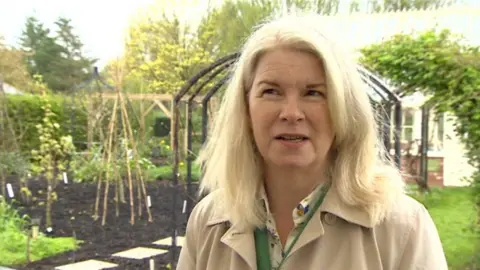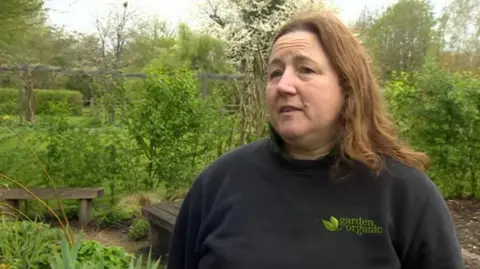Gardeners urged to plant more amid wildlife decline
 BBC
BBCGardeners are being urged to get planting in their back gardens to help reverse a fall in wildlife numbers.
Garden Organic, a horticultural charity based in Ryton-on-Dunsmore, Warwickshire, is encouraging people to grow more plants, flowers and trees to attract insects, birds and other creatures.
A report by the charity found there had been a 13% decline in overall wildlife numbers in the UK, as well as a 40% decline within individual species since the 1970s, mostly due to climate change and human use of land.
Fiona Taylor, chief executive, said “declining species" was a "bad thing for everybody".

She said: “We rely on nature for our food, rely on pollinators to pollinate our crops, we also therefore need a diversity of plants and a diversity of species in order for humans to survive.”
Figures from the Office for National Statistics (ONS) show there is approximately more than 520,000 hectares of gardens in the UK, covering an area just under a quarter of the size of Wales.
“If we could garden all of those pieces of land in harmony with nature, we can stem this crisis of biodiversity loss,” Ms Taylor stated.
Emma O’Neill, head gardener at Garden Organic, said the key message was to have as much “diverse planting as possible".
“So whether that’s annuals, herbs, shrubs, trees... that will obviously bring in lots of different insects; beneficial bees," she explained.
“And even things like sort of little solar fountains, you’ll find things like bees, butterflies, birds still come and drink at those."
Ms O’Neill said there were also options for people without access to gardens, who could grow "things like herbs, annual flowers, marigold [and] calendula".
She added: "And also you can make your own mini sort of bug hotels, so we’ve used hanging baskets before, tiny little log piles right next to your container, anything to attract them in."
Follow BBC West Midlands on Facebook, X, and Instagram, Send your story ideas to: [email protected]
